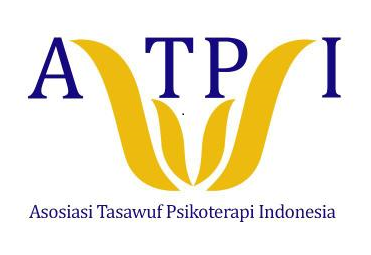Sufism and Mental Health
Application of Sufism Principles in Mental Well-Being
DOI:
https://doi.org/10.28918/jousip.v4i1.8716Keywords:
Sufism, Mental health, Well-beingAbstract
Spirituality in the Islamic religion, known as Sufism, offers principles that can be implemented to support mental health and overall mental well-being. This study examines the relationship between the principles of Sufism and mental health, and how their application can have a positive impact on mental well-being. The main principles of Sufism discussed include reading the Al-Qur'an (while understanding its meaning), prayer, associating with pious people, fasting, and dhikr and prayer. The Qur'an is the first and most important therapy for the welfare of the soul, so that it can provide peace of mind and reduce anxiety and restlessness. Prayer is a manifestation of repentance which can relieve all the burdens of life which can cause stress, tension and anxiety. Associating with righteous people can be a spiritual medicine for illnesses. Fasting teaches us to refrain from all bad things. Meanwhile, dhikr provides peace of mind through closeness to God. Through in-depth literature studies and analysis of Sufism's teachings, this research reveals that these principles have the potential to reduce stress, anxiety and depression, as well as increase resilience and happiness. Apart from that, these principles can also treat mental disorders, both worldly and spiritual. This research highlights the importance of integrating Sufism principles in counseling and therapy practice, as well as providing practical recommendations for individuals and society to apply these teachings in everyday life.
References
Adz-Dzaky, (2002). Konseling dan Psikoterapi Islam. Fajar Pustaka Baru.
Ahonen, M. (2014). Mental disorders in ancient philosophy (Vol. 13). Springer Science & Business Media.
Al-Ghazali (1968). Ma’arij Al-Quds fi Madarij Ma’rifah An-Nafs, Tahqiq of Muhammad Abu Ala. Maktabah Al-Jundi.
Al-Qusyairi, (1972). Al-Risalah Al-Qusyairiyah juz 1. Dar Al-Kutub Al-Haditsah.
Ancok, D. & Suroso, F.N. (2004), Psikologi Islam Solusi Islam atas Problem-Problem Psikologi. Islam atas Problem-Problem Psikologi. Pustaka Pelajar.
Anwar, R. (2010). Akhlak Tasawuf. Pustaka Setia.
At-Tirmidzi, (1293 H). Nawadir Al-Ushul.
Farmawati, C. (2023). Mental Health For Student In Facing Adapting New Habits With Counseling Qur’an Surah Ar-Rad Verse 28. Al-Tazkiah: Jurnal Bimbingan dan Konseling Islam, 12(1), 15-30.
Farmawati, C., Wiroko, E. P., & Sharip, H. (2022). Javanese indigenous healing for physical and mental health. JOUSIP: Journal of Sufism and Psychotherapy, 2(1), 17-32.
Fasya, A. A. (2022). Konsep Tasawuf Menurut Imam Al-Ghazali. JOUSIP: Journal of Sufism and Psychotherapy, 2(2), 153-166.
Fauzan, P. I., & Fata, A. K. (2018). Serat Cabolek, Sufism Book or Ideology Documents of Javanese Priyayi?. El-Harakah, 20(1), 65-80.
Hakim, L. (2021). Urban Sufisme dan Remaja Milenial di Majelis Ta’lim dan Sholawat Qodamul Musthofa Kota Pekalongan. JOUSIP: Journal of Sufism and Psychotherapy, 1(1), 51-68.
Hanna Djumahan Bastaman, (1995). Integrasi Psikologi dengan Islam Menuju Psikologi Islam. Pustaka Pelajar.
Hasneli, (2014). Kesehatan Mental. Hayfa Press Padang.
Jalaluddin, (2004). Psikologi Agama. Rajawali Press.
Kartini, K. & Jenny, A. (1989). Hygiene mental dan kesehatan mental dalam Islam. Mandar Maju.
Rahayu, I. T. (2009). Psikoterapi: perspektif Islam dan Psikologi Kontemporer. UIN Malang Press.
Rosleni, M & Asiyah. (2015). Psilokologi Islam. CV Pustaka Setia.
Sulistiawati. (2017). Kesehatan Mental Menurut Zakiah Daradjat. (thesis). State Islamic University of Raden Intan Lampung.
Yahya, J. (1992). Peranan Taubat dan Manfaat dalam Kesehatan Mental. Yayasan pendidikan Islam Ruhana.
Downloads
Published
Issue
Section
License
Copyright (c) 2024 Vivia Zahira Afiani, Muhammad Ruhiyat Haririe

This work is licensed under a Creative Commons Attribution-ShareAlike 4.0 International License.

















